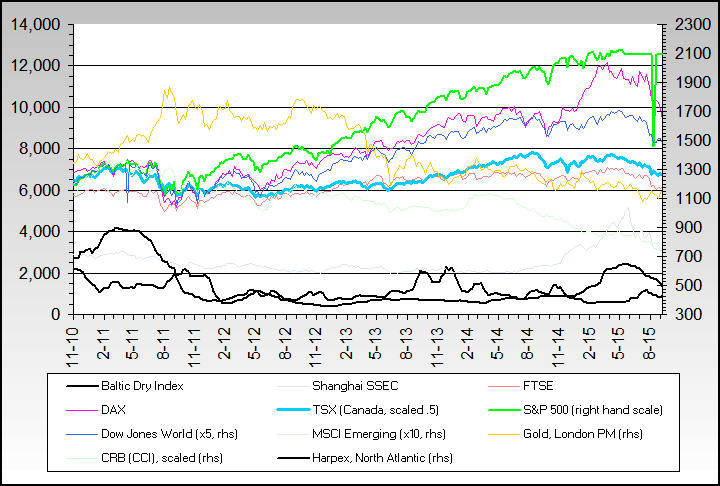Re: Bearish Information Re: Qatar's Delta Drops 10.5 Billion-Pound Sainsbury Bid
This could also be read as Middle East investors getting cold feet about the British real estate market, as this was essentially a real estate play...
Qatar's Delta Drops 10.5 Billion-Pound Sainsbury Bid
Nov. 5 (Bloomberg) -- Qatar dropped its 10.5 billion-pound ($21.9 billion) bid for J Sainsbury Plc after ``deterioration'' in the credit markets and demands by the U.K. supermarket chain's pension fund made the deal too expensive.
It's ``not in the best interests of stakeholders'' to proceed, Delta (Two) Ltd., the investment fund backed by the Persian Gulf emirate, said today...
...Sainsbury shares slid 20 percent, the most since at least 1988, and the risk of owning the London-based company's debt tumbled. Delta, which sought the retailer's 788 stores and 8 billion pounds of real estate, had wrangled with executives and pension trustees since July. The fund said on Oct. 26 that it was seeking an additional 500 million pounds of equity funding.
``The people funding the approach have got cold feet,'' said Bryan Roberts, an analyst at Planet Retail in London. ``The credit crunch has affected their sentiment, and perhaps they're being less bullish about Sainsbury's prospects in a tightening U.K. retail market.''...
Link to article:
http://www.bloomberg.com/apps/news?p...efer=worldwide
This could also be read as Middle East investors getting cold feet about the British real estate market, as this was essentially a real estate play...
Qatar's Delta Drops 10.5 Billion-Pound Sainsbury Bid
Nov. 5 (Bloomberg) -- Qatar dropped its 10.5 billion-pound ($21.9 billion) bid for J Sainsbury Plc after ``deterioration'' in the credit markets and demands by the U.K. supermarket chain's pension fund made the deal too expensive.
It's ``not in the best interests of stakeholders'' to proceed, Delta (Two) Ltd., the investment fund backed by the Persian Gulf emirate, said today...
...Sainsbury shares slid 20 percent, the most since at least 1988, and the risk of owning the London-based company's debt tumbled. Delta, which sought the retailer's 788 stores and 8 billion pounds of real estate, had wrangled with executives and pension trustees since July. The fund said on Oct. 26 that it was seeking an additional 500 million pounds of equity funding.
``The people funding the approach have got cold feet,'' said Bryan Roberts, an analyst at Planet Retail in London. ``The credit crunch has affected their sentiment, and perhaps they're being less bullish about Sainsbury's prospects in a tightening U.K. retail market.''...
Link to article:
http://www.bloomberg.com/apps/news?p...efer=worldwide

Comment